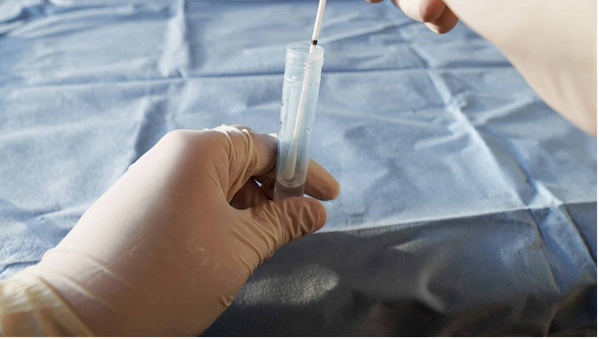Placental Swabs Found Most Effective for Detection of Maternal Sepsis
January 3, 2024
Source: drugdu
 452
452

Over half of maternal deaths occurring in hospitals are attributed to sepsis, a critical condition where an infection spreads beyond local tissue containment, leading to organ failure. Maternal or perinatal sepsis is a significant health concern globally, affecting more than 20 million women and resulting in approximately 17,000 deaths each year. Identifying the infectious agents responsible for these cases is often a complex task. While blood cultures are the preferred diagnostic method, they frequently yield low positive results. Other specimens like vaginal swabs have limited clinical usefulness, and obtaining microbiological cultures from the uterine cavity for antimicrobial guidance is typically challenging. Now, a new study of microbiology specimens used to investigate maternal sepsis has demonstrated that placental swabs could play a vital role in informing antimicrobial therapy decisions.
The study performed by researchers from the University of Limerick (Limerick, Ireland) involved the analysis of nearly 2,000 specimens collected over five and a half years. The team retrospectively assessed the bacterial culture results from various specimens collected as part of a 'septic screen' designed to identify bacteria causing maternal infections leading to sepsis. The specimens included blood, urine, throat swabs, vaginal swabs, and placental swabs. By examining and comparing the results from these specimens for 430 women, the study found that placental swabs were the most effective in detecting the highest number of pathogens.
The study's findings indicate that placental swabs are valuable in identifying potential pathogens from the uterine cavity, which is the most common site of perinatal infections. This discovery is crucial as placental swabs are not routinely examined in many hospitals, meaning vital information that could influence the treatment of these infections might be overlooked. Currently, international guidelines for diagnosing maternal infections are inconsistent, and there is scant information in existing scientific literature about the utilization of placental swabs.
“Maternal sepsis may occur during pregnancy or when a C-section incision, tear or other wound from childbirth becomes infected in the days or weeks after giving birth,” explained Professor Colum Dunne who led the unique new study. “This study provides new information on how sepsis can be detected, and the organisms involved identified early, so that the best approach to successful treatment can be selected.”
Source:
https://www.labmedica.com/microbiology/articles/294799761/placental-swabs-found-most-effective-for-detection-of-maternal-sepsis.html
Read more on
- The first subject has been dosed in the Phase I clinical trial of Yuandong Bio’s EP-0210 monoclonal antibody injection. February 10, 2026
- Clinical trial of recombinant herpes zoster ZFA01 adjuvant vaccine (CHO cells) approved February 10, 2026
- Heyu Pharmaceuticals’ FGFR4 inhibitor ipagoglottinib has received Fast Track designation from the FDA for the treatment of advanced HCC patients with FGF19 overexpression who have been treated with ICIs and mTKIs. February 10, 2026
- Sanofi’s “Rilzabrutinib” has been recognized as a Breakthrough Therapy in the United States and an Orphan Drug in Japan, and has applied for marketing approval in China. February 10, 2026
- Domestically developed blockbuster ADC approved for new indication February 10, 2026
your submission has already been received.
OK
Subscribe
Please enter a valid Email address!
Submit
The most relevant industry news & insight will be sent to you every two weeks.



